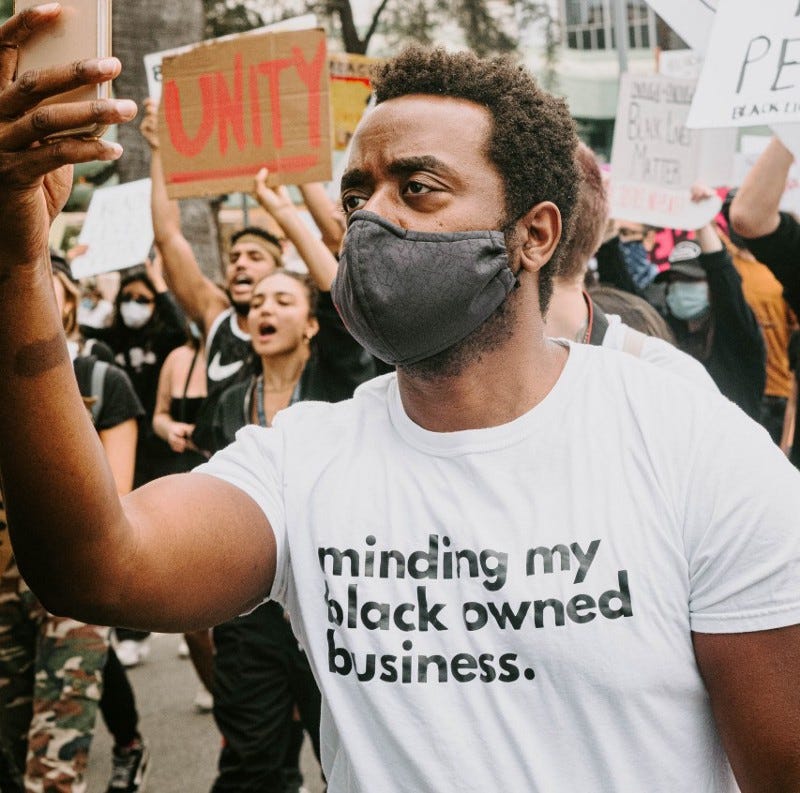Should companies advertise themselves as black-owned?
Why race should not ‘matter’ … and why it does to me anyway

In my line of work, I talk to entrepreneurs and contractors — a lot. And my smile is always a bit bigger when I connect with black-owned businesses outside of music and sports. That’s no knock to music and sports; it’s just that we’ve been connected to those two industries for so long that it feels like a go-to. No one is surprised when Andre starts his own music label. They are, however, surprised when Andre is one of the head marketing executives. (Salute to “Black-ish.”)
But I had a conversation a few weeks ago with a business and tech entrepreneur, and our discussion was about whether black-owned companies should lean heavily on “all black everything” — especially in an industry that is not “all black everything.” Calendly immediately popped into my mind while talking to him. Whenever I set up an interview, there’s about a 75% chance that someone will send me a Calendly link to set up a mutual time. I don’t know why this particular app took off at the rate it did, but I heard about it one time and it seemed like the whole world was using Calendly but me.
Recommended Read: “The most efficient way for black businesses to never succeed … is to let self-hate and self-doubt get in our way”
ADVERTISEMENT ~ Amazon
As an Amazon affiliate, I earn a percentage from purchases with my referral links. I know some consumers are choosing to boycott Amazon for its DEI removal. However, after thinking about this thoroughly, I want to continue promoting cool products from small businesses, women-owned businesses and (specifically) Black-owned businesses who still feature their items on Amazon. As of the first date of Black History Month 2025, each new post will ALWAYS include a MINIMUM of one product sold by a Black-owned business. (I have visited the seller’s official site to verify that Amazon Black-owned logo.) I am (slowly) doing this with older, popular posts too. If you still choose to boycott, I 100% respect that decision.
Now imagine my surprise when I saw this TechCrunch report and found out that startup company Calendly, which is worth $3 billion, is owned by a Nigerian man named Tope Awotona. I’d been using this calendar option for months and never bothered to look at who owned it; I thought I already knew the “look” of the man who did. If not for a photograph of him in the TechCrunch post, I’m not sure how long it would have taken me to figure it out. Quite frankly, it’s not especially important for me to know in order to set up my next meeting date. But I’ll be damned if it’s not refreshing to learn.




